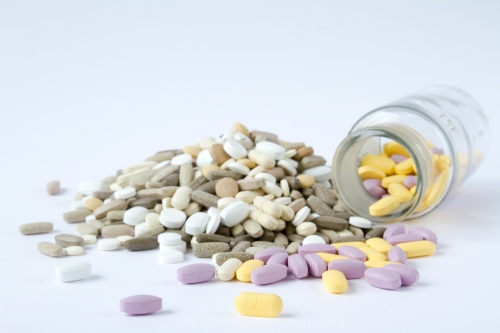What We Do as a General Practice Pharmacist
18 Feb . 4 min read.

There is a huge physician workforce crisis facing general practice surgeries in the UK, so it makes sense that pharmacists, who are currently vastly underutilised, are employed to help support these practices and slot into the exisiting multi-disciplinary teams to augment the vast array of skills with teams and help ensure the best patient care. This is an outline of an average day in my practice. Having already qualified as a pharmacist, and with a few years of experience under my belt, I’m now undertaking further training to get the skills and qualities needed to work as an advanced clinical practitioner within my team. This means I work in practice full time, but I’m also a part time student back at university.
8.30am – My morning clinics starts at 9am, but I came in early to have a look at my patient records to prepare for all the different queries that I am going to be challenged with today. They come as a mixture of same-day appointments and appointments booked in advance, for medication reviews including reviewing blood test results and actioning recent hospital letters. In anticipation for some appointments, I’ll print out any resources that I may require for myself or for my patient – these can be things like leaflets, forms or letters.
9am – I have twelve 15 minute, face to face appointments with patients for various medication related reviews and queries. I don’t get a break in between. If I’m running late, it’ll impact on available appointments tomorrow. I have to be quick but thorough. These appointments include mood reviews for patients on anti depressants, blood pressure medication changes, type 2 diabetes follow-up appointments, discussing medication changes from recent hospital visits, administering flu-jab vaccinations, discussing side-effect from medications, diagnosing and treating minor ailments that require medication which can be bought over-the-counter in a community pharmacy, discussing potential overuse of medication in the frail or elderly patients and so much more. The challenge lies in the variety of questions I might be asked. Being able to find answers quickly to questions I’ve never been asked before is something I learned early on.
12pm – I kept up to time restrictions in the morning clinic! The next challenge is six 10 minute telephone consultations with patients for medication-related queries. These can be anything ranging from repeat prescription problems and prescribing alternatives for out-of-stock medication to reviewing blood test results to determine whether patients need to continue taking their vitamin supplements and changing doses of medicines based on blood results or symptoms.
1pm – Lunch time! Although I’m working through my lunch (one of the phone call appointments was more complicated than I anticipated) I sometimes use any extra time I have to write up any of the morning’s consultations as well as writing up any referral letters or actioning blood test results. I go where the work is needed. I’m versatile like that!
1.30pm – Liaising with GP to discuss any queries arising from my morning clinics or liaising with other members of the general practice team such as nurses, healthcare assistants or admin staff to discuss staff training, patient appointments or following-up patient or clinician queries from the day before.
2pm – Repeat prescription queries – On a typical day, I may have to deal with around 120-150 prescription queries ranging from reauthorisation of repeat prescriptions, monitoring medications that are high-risk of side-effects and requiring regular blood test monitoring, prescriptions that require alternative medications as they are out of stock and require contact with local community pharmacist colleagues for advice on what is available.
4pm – I spend the last two hours of my day either conducting face to face long-term conditions appointments such as type 2 diabetes reviews or high blood pressure reviews on certain days of the week or I manage the practice’s medication related administrative work. The administrative work is quite intense as I can be conducting audits on safe prescribing, evaluating prescribing decisions and ensuring they are cost-effective, reviewing hospital discharge or clinic letters or dealing with medication safety alerts as advised by the MHRA (Medicines & Healthcare products Regulatory Agency) who regulate and ensure medication safety for the general public.
6pm – I finally finish, well actually I leave at least 30 minutes later than scheduled as I need to finish writing up my notes. More often than not, reception staff will stop me to deal with last minute urgent medication queries too.
It’s a thankless task but that’s what we do. We make sure every single patient is on the right medication, at the right dosage; we refer patients to the right specialists; we look for signs of serious illness. Pharmacists working in general practices do more than just medication reviews. We not only significantly reduce GPs workload and make sure they’re available to see their patients, but we also enhance patient care, increase patient access to healthcare, save the NHS millions of pounds by changing to equally effective yet much cheaper medicines, and improve patient clinical outcomes by reducing avoidable hospital admissions to an already overstretched NHS that is close to breaking point.
We are not doctors or pretend doctors. We are Pharmacists.
Author: Siddiqur Rahman